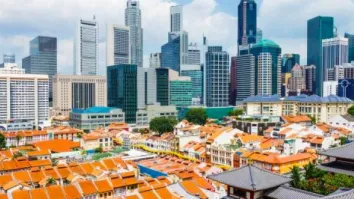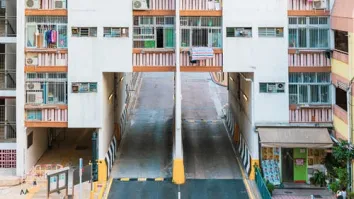
Almost 1 in 2 investors don't plan on buying Malaysian hotel assets within the next two years
Only 14% anticipate buying hotel assets in the same time frame.
Knight Frank’s Malaysian Hospitality Investment Intentions Survey analysed the investment perspectives of hotel owners, operators and owner operators, providing an insight on investment demand, investor preferences and pricing. The survey also shares how COVID-19 has impacted the sector and what measures could be taken to provide some much needed relief. The survey was conducted in the fourth quarter of 2020.
The survey reveals that 14% of the respondents anticipate buying hotel assets within the next two years, whilst 16% look to make an acquisition even sooner within the next 6 months despite the pandemic.

James Buckley, Executive Director of Capital Markets, Knight Frank Malaysia, says, “Well capitalised, shrewd investors are looking beyond the pandemic and see this as an opportunity to acquire prime hotel assets at more reasonable pricing. We believe prices for Malaysian hotels that trade will reflect a 10-30% discount from their pre-COVID values.”
In Southeast Asia, Malaysia ranked 3rd as the most attractive country for hotel investment, after Thailand and Singapore. Several criteria were highlighted as important factors when choosing to set up a hotel operation in a country. 89% of the respondents indicated that tourist arrivals and flight accessibility is crucial in their investment decision making process. This was followed by friendly government initiatives which play an important role in motivating hotel operations and investments as it cushions the impact of market sentiment.
James Buckley adds, “Tourism is an important sector as it is the third largest contributor to the economy and employs about 3.6 million people. Before the pandemic hit, it contributed a total of RM86 billion in tourist receipts from about 26 million international visitors in 2019. Upgrading / expanding and improving direct international flights to Penang and Langkawi in particular would provide a real boost to tourism. Langkawi is a fantastic tourist destination with great potential to grow its international tourist arrivals and receipts and compete on the same footing as Phuket, Bali and the Maldives. To achieve this, it needs to improve its regional flight accessibility. Before the pandemic hit, there were only direct international flights from Guangzhou, Singapore, Phuket, and Doha.”
Location is considered the most important factor by respondents when investing in a hotel. Hotel performance is highly driven by guests who value hotel locations. The next factor considered by 72% of respondents was the expected return / yield. Many investors are now seeking higher returns to offset the risk of investing in the sector during the pandemic with 36% of respondents targeting a net yield of above 7%. As a consequence in 2020, the volume of hotel transaction across Malaysia fell by 36% compared to the 10-year annual average. The availability of bank financing for hotel transactions has been significantly curtailed which has also played a factor.
Justin Chee, Executive Director of Valuation & Advisory, Knight Frank Malaysia, says, “During these challenging times, investors are increasingly looking for yield accretive assets and as shown by the sentiment survey; majority of respondents (36%) expect a net return of above 7% from the hotel asset class. It is important to note that based on the past few hotel transactions (in the past 5 years) hotels in Malaysia were generally transacted at net yields of about 4% to 6% and there is definitely a mismatch between the expected return and the selling prices of hotels. What we may possibly see during this pandemic and the fallout of the COVID-19 impact on the hospitality sector is the bridging of gap between the two as vendors are getting more realistic with their hotel values and asking prices.”
Malaysian Hospitality Sector Outlook in 2021
Almost half of the respondents remain positive about the hospitality sector outlook in the next 12 months with 45% feeling that the sector is on its way to recovery, albeit contingent on the progressive roll out of the vaccine and opening up of international travel restrictions.
The Malaysian government has provided wage subsidies to the hotel sector to cushion the impact of COVID-19, however the industry has put forward other ideas to assist the sector. These ideas include temporary reclassification of electricity tariffs, tax cuts and temporary moratorium on quit rent.
Judy Ong, Executive Director of Research & Consultancy, Knight Frank Malaysia, says, “However, with the country now under MCO 2.0 with exception of Sarawak following resurgence of COVID-19 cases, the road to recovery for the battered tourism industry will be long and hard. Government measures and incentives to support the industry may be too little and too late as we continue to hear of more hotels shutting down either temporarily or permanently.
“Hotels that are still in operations are aggressively promoting staycations and attractive ‘work from hotel’ packages as well as food delivery service to stay afloat and support employment.
Moving forward, once interstate travel is allowed, we believe that domestic tourism will lead the way to recovery supported by the recently launched National Tourism Policy 2020 – 2030, which aims to position the country as among the top ecotourism destinations.”
To download the report, click here.



















 Advertise
Advertise






